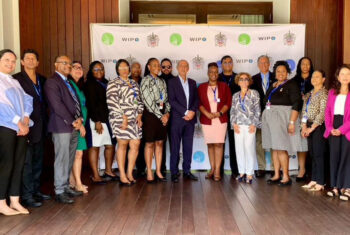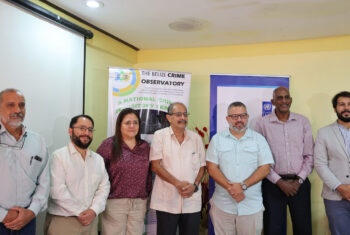Belmopan. July 24, 2020. 1:30 p.m.
Hon. Wilfred Elrington, Minister of Foreign Affairs of Belize, represented the Alliance of Small Island States (AOSIS) at the United Nations Security Council Open Debate on Climate Security held on July 24th, 2020.
Chaired by the Foreign Minister of the Federal Republic of Germany, the objectives of the Open Debate were to provide the Security Council with comprehensive and authoritative information on the environmental and sustainable development dimensions of climate change and their implications on international peace and security. Belize was invited to participate as a non-member of the Security Council within the principles of Rule 37 of the Provisional Rules of Procedure of the Security Council.
In his statement to the Security Council, Minister Elrington emphasized the paramount importance of UN Member States upholding their commitments and obligations under the Paris Agreement of 2015; the application of the best available science to addressing climate-related security risks; the promotion of climate adaptation as instrumental in dealing with the indiscriminate consequences of climate change to the most vulnerable states; and the need to enhance the capacities of the UN system to effectively deal with the worst-case scenarios of climate change.
Importantly, in light of the COVID-19 pandemic, Minister Elrington noted the key linkages between the effects of climate change and the increased risks of pandemics and public health crises:
“International research has shown that seventy-five percent of ongoing infectious diseases are zoonotic in origin. Hence, we call for a cessation of irresponsible and unethical practices that may cause interruptions to the natural order of ecosystems. We wish to stress that environmental accountability and the safeguarding of our natural heritage is crucial to humanity and the planet’s survival.”
Minister Elrington concluded his remarks by affirming the necessity of international solidarity, cooperation, multilateralism, and strong partnerships in overcoming the security crises caused by climate change.
Ends


